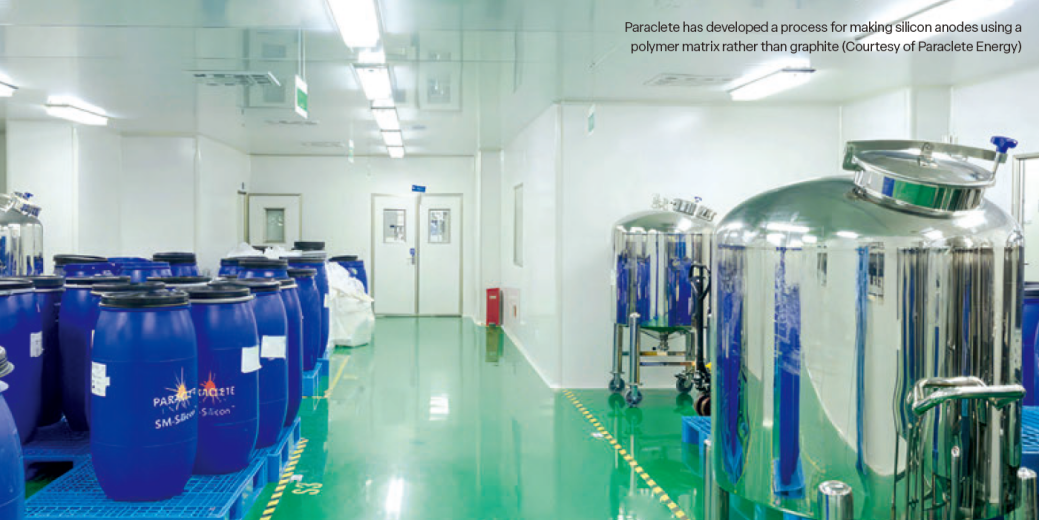"Informed AI News" is an publications aggregation platform, ensuring you only gain the most valuable information, to eliminate information asymmetry and break through the limits of information cocoons. Find out more >>
American companies have introduced anode materials with high silicon content, helping electric vehicles achieve a range exceeding 1000 kilometers.
- summary
- score

The electric vehicle market is booming, leading to a surge in demand for lithium batteries. Traditional lithium batteries often use graphite for the anode, with an energy density of about 250Wh/kg, which is difficult to meet future needs. Silicon-based materials, due to their high theoretical capacity, have garnered significant attention, but they face challenges such as low conductivity, large volume expansion, and poor cycling performance.
American company Paraclete Energy has introduced SILO Silicon™, a silicon anode material with a silicon content as high as 83%, achieving an energy density of 520Wh/kg, triple that of traditional graphite anodes. This material employs a polymer matrix to effectively control electrode expansion and enhance ionic conductivity, addressing the main issues with silicon-based anodes.
SILO Silicon™ material can reduce battery costs to $35 per kilowatt-hour, increase charging speeds, and extend the range to over 1000 kilometers. Paraclete Energy plans to begin deliveries in the fourth quarter of 2024, expected to outpace competitors by several years.
This technology meets market demands for long range, fast charging, and low cost, accelerating the adoption of electric vehicles.
| Scores | Value | Explanation |
|---|---|---|
| Objectivity | 6 | 内容客观,全面报道并深入分析了硅负极材料的技术进展。 |
| Social Impact | 5 | 内容引发广泛社会讨论,显著影响公众对电动汽车技术的看法。 |
| Credibility | 5 | 内容完全可信,有坚实的证据支持,来自�权威来源。 |
| Potential | 6 | 内容具有极高潜力,几乎必然导致电动汽车技术的重大变革。 |
| Practicality | 5 | 内容极其实用,已被广泛应用于实践并取得良好效果。 |
| Entertainment Value | 3 | 内容具有一定的娱乐价值,能够吸引一部分观众。 |